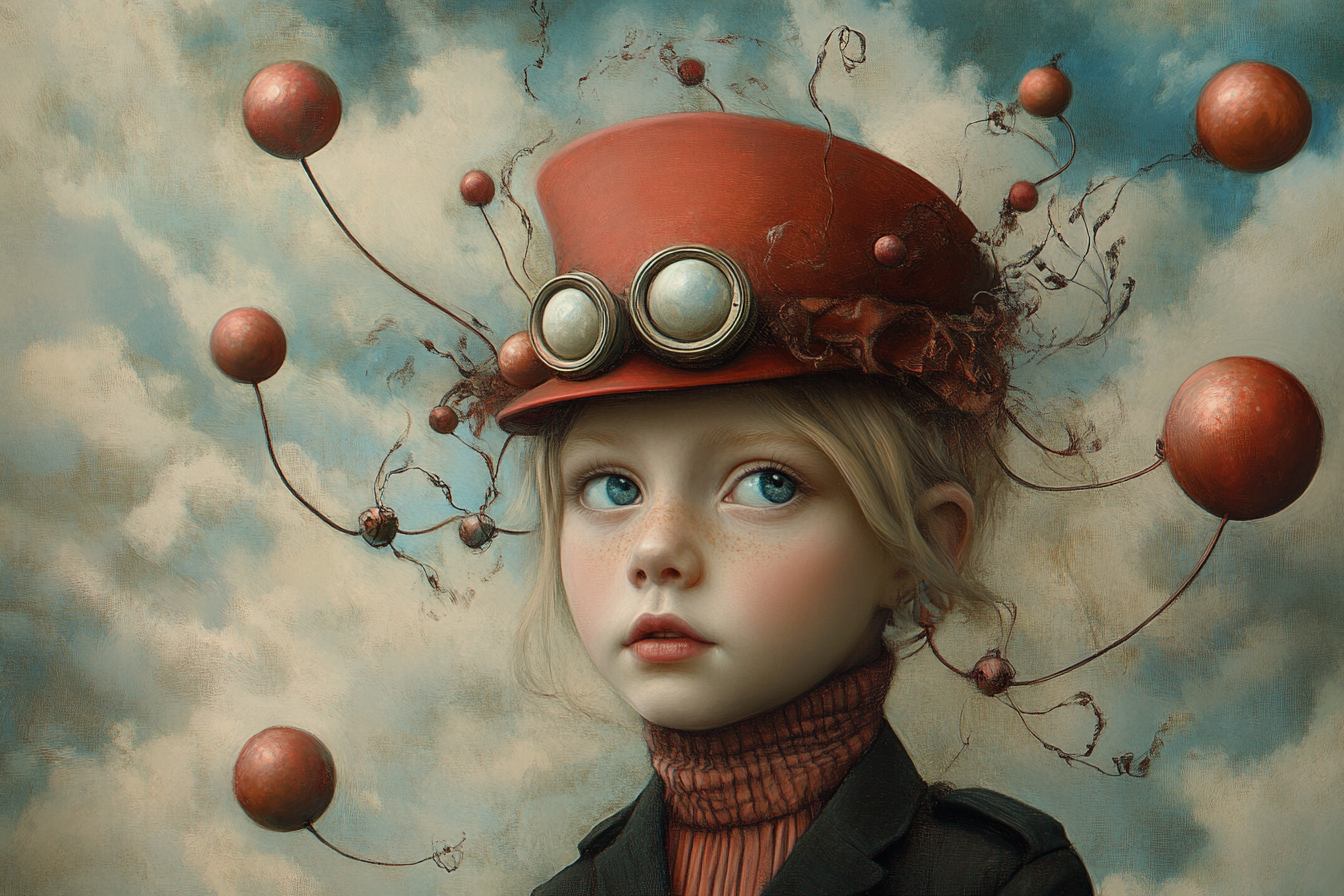What Is the "Child Prodigy" Trope?
The Child Prodigy trope refers to young characters who possess extraordinary intelligence, talent, or skills far beyond their years. Whether they’re mastering quantum physics at age seven, composing symphonies at ten, or hacking government databases before middle school, these characters are often portrayed as brilliant but socially awkward or wise beyond their years.
This trope plays into the fascination with gifted children, but it can also lead to unrealistic expectations about intelligence, maturity, and the burdens of genius.
Origins and Evolution in Media
The concept of the child genius has existed for centuries, from Mozart’s real-life musical talent to fictional prodigies like Sherlock Holmes as a young detective. In modern storytelling, the trope became a staple of sci-fi, comedy, and drama, often exploring the tension between intelligence and childhood innocence.
🚩 Key Moments in Child Prodigy History:
- Matilda (1988 novel, 1996 film) – A gifted girl with telekinesis who outsmarts adults.
- Doogie Howser, M.D. (1989-1993) – A teenage doctor navigating both medicine and adolescence.
- Ender’s Game (1985) – A child military strategist manipulated by adults to fight intergalactic battles.
- Dexter’s Laboratory (1996-2003) – A comedic take on the prodigy as a kid scientist.
- The Queen’s Gambit (2020) – Chess prodigy Beth Harmon, showcasing the dark side of early genius.
Common Traits of the "Child Prodigy" Trope
- Extraordinary intelligence or skill – Excels in academia, science, music, hacking, or strategy.
- Socially awkward or emotionally stunted – Struggles to relate to peers, sometimes acts condescending toward adults.
- Burdened by expectations – Parents, teachers, or society pressure them to be perfect.
- Has a mentor or skeptical adult figure – A teacher or scientist who either nurtures or doubts their abilities.
- Often lacks a normal childhood – Skips grades, works in adult spaces, or carries adult responsibilities.
- Might have a rebellious streak – Uses their intelligence to defy authority or outsmart villains.
Examples in Film & TV
✅ Matilda Wormwood (Matilda, 1996) – A genius child with magical abilities, using her intellect to fight injustice.
✅ Lisa Simpson (The Simpsons, 1989-Present) – A saxophone-playing, socially aware prodigy struggling to fit in.
✅ Sheldon Cooper (Young Sheldon, 2017-Present) – A child physics genius navigating a world that doesn’t understand him.
✅ Beth Harmon (The Queen’s Gambit, 2020) – A chess prodigy with genius-level strategy and emotional trauma.
✅ Dexter (Dexter’s Laboratory, 1996-2003) – A hyper-intelligent kid scientist whose arrogance often backfires.
✅ Doogie Howser (Doogie Howser, M.D., 1989-1993) – A 14-year-old doctor balancing medical genius with teenage life.
✅ Ender Wiggin (Ender’s Game, 2013 film, 1985 novel) – A military prodigy forced into war too soon.
✅ Meg Murry (A Wrinkle in Time, 1962 novel, 2018 film) – A math prodigy with emotional intelligence and bravery.
🚩 Darker Takes on the Trope:
- Damian (The Omen, 1976) – What if the child prodigy was actually the Antichrist?
- River Tam (Firefly, 2002-2003) – A government-engineered genius who also suffers from extreme trauma.
Why the Trope Is So Popular
The Child Prodigy trope taps into multiple audience fantasies:
✅ Wish Fulfillment – Who wouldn’t want to be a genius as a kid? Many viewers admire or relate to these characters.
✅ A Subversion of Power – Kids are usually powerless in media, but prodigies outsmart adults and challenge authority.
✅ Explores the Dark Side of Genius – Many child prodigy stories examine the cost of intelligence, whether it’s loneliness, pressure, or manipulation.
✅ Comedy Potential – A child acting like a serious adult can be inherently funny (e.g., Young Sheldon).
Problems with the Trope
🚩 Unrealistic Expectations – Media often exaggerates genius, making real child prodigies seem less impressive.
🚩 Ignores Emotional Development – Many stories treat gifted kids as tiny adults, ignoring their emotional needs.
🚩 Overused in Sci-Fi & Fantasy – Too many movies rely on “super smart kid saves the world” (e.g., Ender’s Game, Artemis Fowl).
🚩 Often Limited to Certain Fields – Most child prodigies in media excel in math, science, or chess, rarely in art, social intelligence, or creativity.
How the Trope Is Evolving
Modern films and TV shows are starting to challenge or deconstruct the trope:
✅ More Emotional Depth – Shows like The Queen’s Gambit and Young Sheldon explore the personal struggles of prodigies, rather than just making them superhuman.
✅ Breaking Gender Norms – While early prodigy stories focused on boys, modern media features more female prodigies (Beth Harmon, Meg Murry, Matilda).
✅ Moving Beyond Intelligence – Some stories now value emotional intelligence and creativity over raw IQ (e.g., Moana, A Wrinkle in Time).
Final Thoughts
The Child Prodigy trope is both inspiring and problematic—while it showcases the power of intelligence, it can also unrealistically glorify genius and ignore the struggles of real-life gifted kids. However, when handled with depth and nuance, it remains one of the most compelling character archetypes in storytelling.
📌 What do you think? Who’s your favorite child prodigy in film or TV? Do you think the trope needs updating? Let’s discuss!
